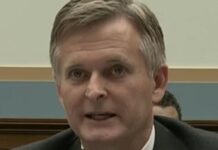
Tesla on Wednesday reported its third consecutive quarterly profit, defying the projections of analysts who had expected the Covid-19 pandemic to drive the electric carmaker to a loss. The company touted production of the Model Y, its more affordable SUV. Tesla shares jumped almost 9 percent in after-hours trading.
But for many, the achievement was eclipsed by the theatrics of CEO Elon Musk, who has been chafing against government stay-at-home rules and the closure of Tesla’s factory in Fremont, California. In what started as a sedate call with analysts Wednesday afternoon, the SpaceX and Tesla leader let loose on officials who recently extended the region’s shelter-in-place order through the end of May. The orders are “forcibly imprisoning people in their homes, against all their constitutional rights,” Musk said. “That’s not why people came to America or built this country. What the fuck?”
Car manufacturing is not on the expanding list of permitted activities in the Bay Area, which seems to mean that the Fremont factory—where all of Tesla’s Model S, X, and Y vehicles, and most of its Model 3’s, are made—will remain closed. Tesla reportedly attempted to recall some of its workers this week, but reconsidered when the Bay Area extended its shelter-in-place orders.
Musk said Tesla “will weather the storm” of the pandemic, but some of its smaller suppliers may not. “To say that [people] cannot leave their house and will be arrested if they do, this is fascist,” Musk said. “This is not democratic. This is not freedom. Give people back their goddamn freedom.”
Residents are permitted to leave their Bay Area homes to buy food, exercise, and perform their essential jobs. Officials plan to broaden the list of permitted activities next week.
Musk has touted contrarian views on Covid-19 since the virus hit home in the US last month. “The coronavirus panic is dumb,” he wrote on Twitter on March 6. Later that month, he cast doubt on the connections between deaths in Italy and Covid-19. He joined some fellow techies in boosting the malaria drug chloroquine as a possible cure for the disease, though further research has shown the drug has mixed and sometimes dangerous results for Covid-19 patients. He promised to purchase ventilators for hospitals that needed them, then donated what turned out to be a cheaper type of ventilator that had to be converted for use with Covid-19 patients. (Three hospitals contacted by WIRED said they were grateful for the help.) He also predicted that US cases of coronavirus would be close to zero at the end of April. Virus trackers at Johns Hopkins University reported 24,400 new cases in the US on Tuesday. Late Tuesday night, Musk tweeted in all caps: “FREE AMERICA NOW.”
Some areas have shown success in “flattening the curve,” but medical experts have warned that a less-than-cautious approach to reopening businesses could lead to an uptick in infection and death.
Musk fans love his off-the-cuff approach to corporate communications. But his tweeting habits have gotten him into hot water before. In 2018 he and Tesla settled a lawsuit with the US Securities and Exchange Commission after he wrote on Twitter that Tesla had the funding to go private, which wasn’t true. He also used Twitter to call a man critical of his approach to a cave rescue in Thailand a “pedo,” an accusation that led to a federal defamation lawsuit. (Musk eventually won.) Musk’s repeated controversies prompted insurers to raise their rates to cover Tesla’s officers and directors. This week, the company revealed what experts called an unusual move—Musk will pay the company’s insurance costs himself.
Still, Tesla maintains a strong fan base in spite—and sometimes because of—Musk’s antics, and it has captured the imagination of many who believe converting the world to electric vehicles is the only path to saving it from climate change. “Musk has done a few controversial things in the past, but people in this country forgot things or moved on from them quite quickly,” says Jessica Caldwell, an analyst with Edmunds. She calls the Tesla brand “Teflon-like.”









